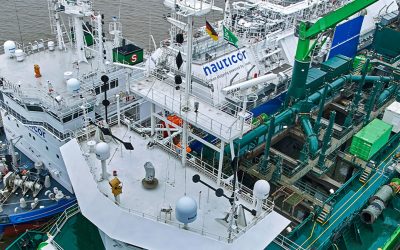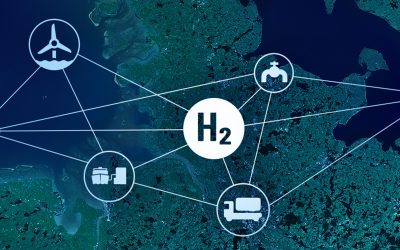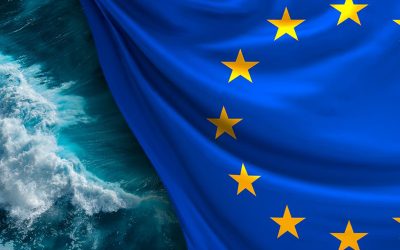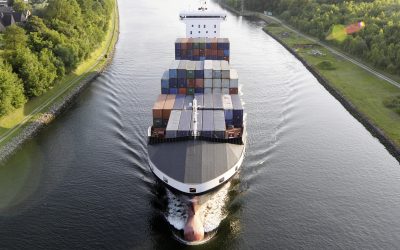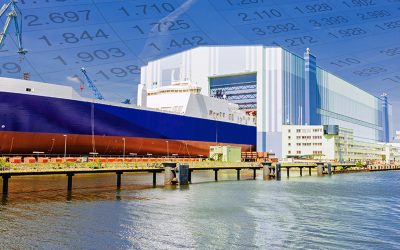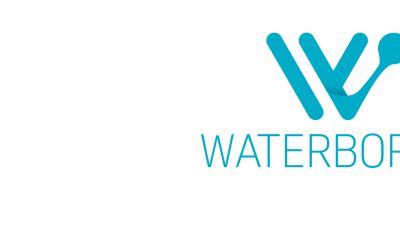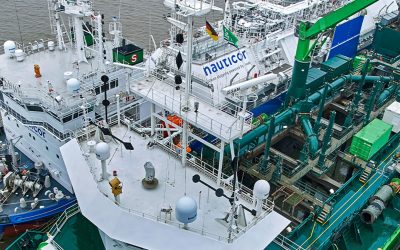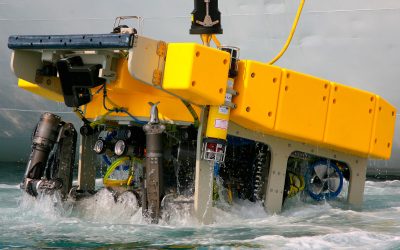
Hanna Maurer
Social Media for the Maritime Industry
Phone: +49 40 9999 698 - 82
E-Mail: Maurer[at]dmz-maritim.de
For most people, but especially for young people, the search for information and communication takes place online as a matter of course. With this pattern of behaviour towards media use and information, the expectations of applicants, customers and business partners towards companies have also changed. To remain successful in communication and provide identification opportunities for their target audiences, companies should be digitally visible and capable of engaging in dialogue. They must establish themselves as a trustworthy corporate brand.
A survey conducted by the German Maritime Centre in June 2021 revealed that many small and medium-sized companies in the maritime industry have not been utilising digital media opportunities – either to position themselves strategically or to create digital touchpoints with their target audiences. The reasons for this and how untapped potential can be exploited were questions which prompted further research by the German Maritime Centre. It was clear that convincing arguments and practical guidance were requiredto establish and further develop digital communication activities successfully.
In order to raise awareness among maritime companies and other maritime stakeholders about the necessity of digital communication activities and to strengthen the competitiveness and future viability of the industry in this area, in the autumn of 2022, the German Maritime Centre commissioned a potential analysis on the relevance of digital communication in the maritime industry. From August 2022 to April 2023, EurA AG conducted research on industry-specific opportunities for improvement in the field of digital marketing communication and developed practical recommendations for action together with the German Maritime Centre.
Objective
The overall objective of the potential analysis is to provide executives and communication managers from small, medium-sized and family-run maritime companies (with up to 249 employees) with a strategic decision-making framework for selecting and strategically utilising digital communication tools to increase their competitiveness.
To this end, the strategic possibilities of digital media for maintaining the competitiveness and future viability of the maritime economy needed to be assessed. In an empirical survey of maritime companies, the status quo of digital communication activities in the maritime industry was recorded and the potential areas for improvement were identified. In conclusion, concrete recommendations for action should be provided for operational implementation, taking into account limited financial and time resources.
Questions:
- What are the competitive deployment options for digital communication media (personnel recruitment and retention, image/credibility, name recognition, customer acquisition, etc.)?
- Which digital communication methods are a “must-have” for securing competitive strength?
- What opportunities and risks does digital communication present for the competitiveness and future viability of maritime companies?
- For which methods can and should maritime companies allocate their (limited) resources for the digitalisation of their communication? What are the concrete recommendations for action?
Findings and recommendations for action
The upcoming generation of potential employees and decision-makers involved in the procurement process obtain their information online and make their decisions on this basis. The ARD/ZDF Online Study 2022, for example, illustrates the extent of digital media use among individuals aged 14 to 29: this age group spends an average of 413 minutes per day on the internet, which is about 7 hours. This trend affects all communication and information media. Whether it be a website, a newsletter or social media – the potential analysis shows that the opportunities presented by digital communication methods to increase competitiveness in the maritime industry are not yet being fully exploited. This conclusion is drawn from the comparison between theoretical observations of the potential of digital platforms and the status quo recorded in an online survey:

A total of 152 maritime companies took part in the survey, 97% of which are digitally active according to their own statements. Small and medium-sized companies account for 72% of the participants and are thus the main target group of the potential analysis carried out.
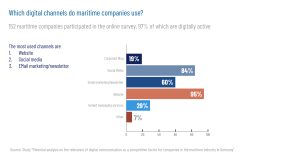
Companies are utilising established digital channels such as websites, newsletters and social media platforms including LinkedIn, Facebook and Instagram, however they are less inclined to use digital communication channels preferred by a younger user group. These include the social media platform TikTok, the employer review platform kununu and instant messaging services such as WhatsApp, Signal and Threema. Nevertheless, new communication channels should be chosen carefully – the app TikTok, for example, is controversial for cybersecurity reasons.

Furthermore, methods to increase reach are not being sufficiently used. In order to be found via target audience and topic-relevant keywords, it is necessary to take these into account when designing the content of the website. Although 86% of the companies surveyed are digitally active with the aim of being easily discovered, 57% do not use search engine marketing – the central instrument for online discoverability.
Digitally active companies seem convinced of the strategic necessity of online communication: 74% of respondents perceive a competitive advantage through the use of digital media. Despite this, 80% of the companies surveyed invest less than 20 hours per month in digital communication activities. The top 3 hurdles mentioned by companies are the significant time commitment, lack of know-how and high costs.
Digital marketing communication is and remains a strategic decision and a question of mindset. Investments in personnel and know-how are indispensable if the methods are to be targeted and successful. To be able to capitalise on the competitive advantages of using digital media, the potential analysis includes the following recommendations for action:
- Develop a marketing communication strategy taking into account external influencing factors such as competition, expectations and the target audiences’ habits in terms of digital information and usage, as well as internal resources such as personnel, know-how and budget.
- The company website, as an “owned media”, represents the digital business card of the company and should be the centrepiece of digital activities. In order to be found via target audience and topic-relevant keywords, it is necessary to exercise search engine marketing.
- “Think big, start small, learn fast” – according to this motto, you should start with one or two additional digital channels in addition to the website and pay attention to congruence during implementation.
- Utilise employees as credible company ambassadors and testimonials in the digital media. Referral marketing or word-of-mouth builds trust online as well as offline. In order to benefit from this as an employer and business partner, companies can motivate their employees to like, comment and share company posts, or to post their own contributions.
- To enable employees to use social media safely, companies can, for example, create social media guidelines and raise awareness of the opportunities and risks.
The German Maritime Centre will continue to support maritime stakeholders in the digitalisation of their communication activities with studies and practical information and exchange formats, e.g. with the bi-monthly networking and exchange format “Social Media Call”.





